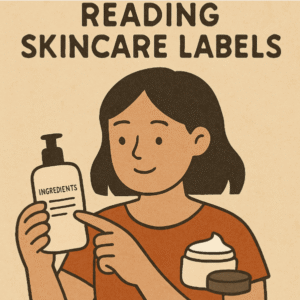What Are Clean Skincare Products?
Clean skincare products are those formulated without toxic ingredients that could harm health or the environment. These products prioritize safe, non-toxic ingredients while maintaining efficacy. They often exclude parabens, sulfates, phthalates, and synthetic fragrances. While the definition of “clean” can vary, it generally emphasizes transparency and the exclusion of harmful substances. Many clean skincare formulations also focus on organic and plant-based ingredients, ensuring that what you apply to your skin is as close to nature as possible. As consumers become more informed, the demand for clean skincare continues to grow, prompting innovation across the industry.
The Importance of Clean Beauty
The clean beauty movement is more than a passing trend—it’s a reflection of increasing awareness about the impact of chemicals on health and the planet. Consumers are demanding ingredient transparency, pushing companies to disclose their practices and adopt sustainable methods. This shift represents a broader cultural change towards wellness and environmental responsibility, where individuals are more cautious about consumption habits. With rising concerns about hormone disruption and ecological degradation, clean beauty offers a solution that aligns with modern values while promoting ethical practices across the industry.

Key Considerations When Choosing Clean Skincare Products
Researching Ingredients
Understanding ingredient lists is crucial when selecting skincare. Look for recognizable, plant-based ingredients and avoid long lists of harsh synthetics. Resources such as independent ingredient databases can help assess safety, while familiarizing yourself with common harmful substances—like parabens or phthalates—empowers you to make healthier choices. Staying informed about emerging research ensures your routine remains effective and aligned with your wellness goals.
Brand Transparency
Prioritize companies that are open about their sourcing, production methods, and ingredient lists. Transparency builds trust and empowers consumers to make choices that reflect their values. Ethical companies often disclose detailed information about their sustainability efforts and ingredient origins, while also investing in quality control and eco-friendly practices.
Certifications to Look For
Certifications can help verify the integrity of products. Labels such as organic, cruelty-free, or eco-certifications ensure that items meet specific environmental and ethical standards. Understanding what each certification entails enhances your ability to select products that align with your priorities—whether that’s avoiding animal testing, supporting sustainable agriculture, or choosing products made with verified natural ingredients.

Making Informed Choices
Personalizing Your Skincare Routine
When choosing clean skincare, consider your skin type and any specific concerns. Build a routine tailored to your needs while staying true to clean beauty principles. Whether you have dry, oily, sensitive, or combination skin, there are clean solutions that can help restore balance. Tracking how your skin responds over time also allows you to refine your regimen for optimal results.
The Role of Lifestyle and Environment
Your lifestyle and surroundings influence your skincare needs. For example, urban dwellers may benefit from pollution-defense products, while those in sunnier climates should prioritize sun protection. Stress, diet, and sleep also play significant roles in skin health, making a holistic approach essential. By aligning skincare with lifestyle and environmental factors, you can build a routine that’s both comprehensive and effective.
The Future of Clean Skincare
The clean beauty movement shows no signs of slowing down. Informed consumers are driving innovation, encouraging the development of products that are both safe and sustainable. This ongoing evolution is reshaping the beauty industry, fostering collaboration between brands and consumers, and creating solutions that align with modern values.
Trends Shaping the Industry
-
Sustainable Packaging: Growing emphasis on recyclable and biodegradable solutions reduces the industry’s ecological footprint.
-
Ingredient Transparency: Full disclosure of sourcing and production builds accountability and consumer trust.
-
Inclusivity and Diversity: The movement is expanding to ensure clean skincare addresses the needs of all skin types and tones, making wellness accessible to everyone.
Conclusion
Choosing clean skincare is an empowering step towards healthier living and a more sustainable future. By understanding ingredients, seeking transparency, and supporting ethical practices, you can make choices that benefit both your skin and the planet. As the wellness industry continues to evolve, embracing clean skincare ensures you stay ahead of the curve while contributing to a broader cultural shift towards responsibility and sustainability.




